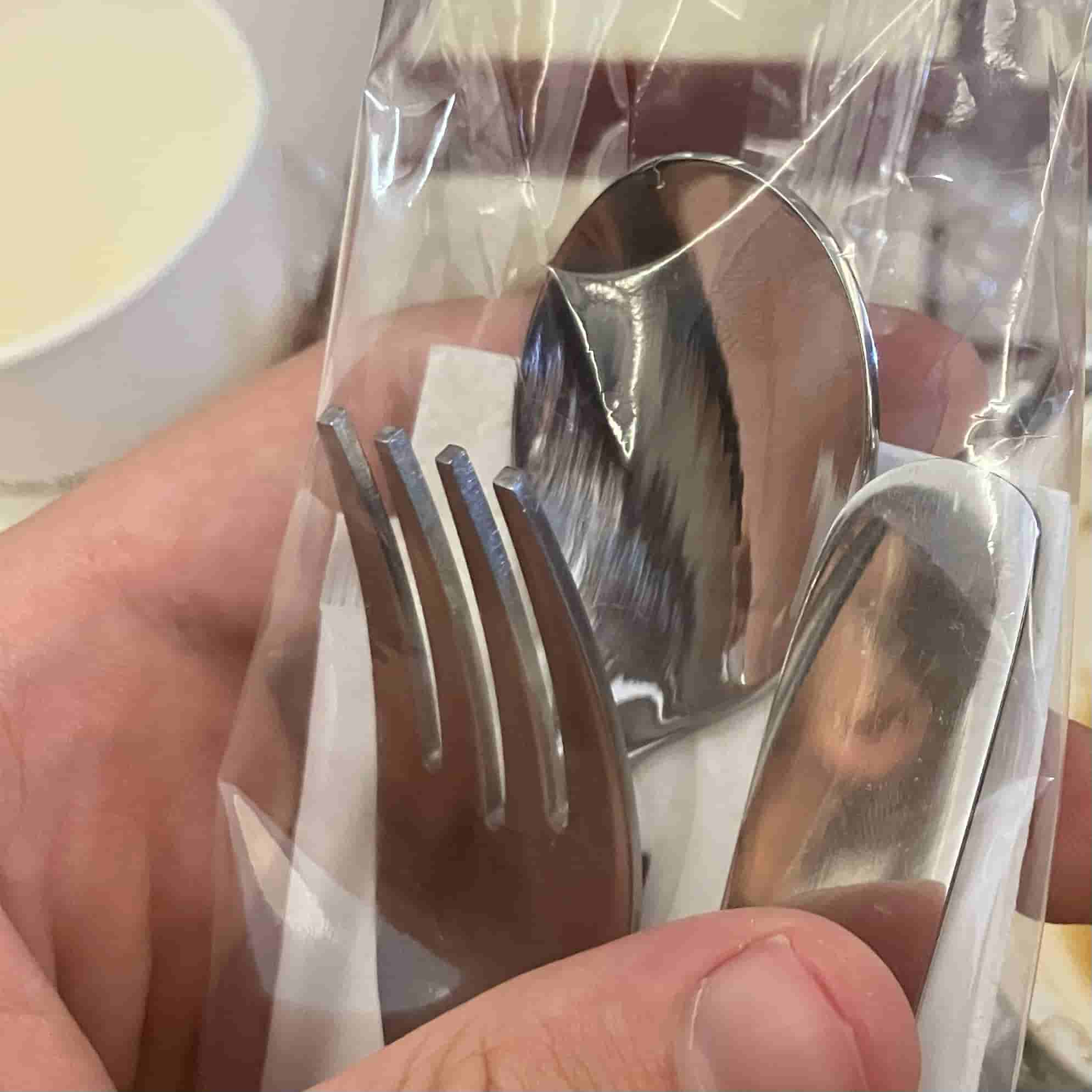Airline Food
Abstraction Opposes Integration
I was flying with Asiana Airlines today. They have excellent service and the meals are high quality, but I encountered something that shook my world view.
They served metal cutlery in sealed plastic packaging.
Until making this discovery, I was convinced that single-use plastic was a one-way street. To my American mind, the sealing part is completely abstracted away. It happens in some faraway land that I will never see, so it should be impossible to package something that's reusable.
The Packaging Abstraction
Of course, this shouldn't have been surprising to me. Machines that wrap things in plastic are probably super cheap and efficient, given that there's so much plastic in the world.
In America, though, reusable and disposable components are never mixed. United Airlines probably gives everybody single-use containers, cutlery, and trays inside their plastic wrap.
Is this because Americans value disposability, or is it because plastic sealing is an unknown art? The Asiana airlines approach still wastes plastic, but at least it's much less wasteful than American take-out.
What struck me about this cutlery situation is that I suspect that the process happening somewhere else™ is why America never mixes reusable with disposable. What other integrations are we missing out on?
Sewage ≠ Garbage
In The Half-Acre Homestead, Lloyd Kahn spends a full page ranting about how nobody understands sewage anymore. Apparently, garbage disposals are actually really bad for sewers because the bacteria that forms around human waste isn't compatible with the bacteria that forms around food scraps.
Garbage disposals probably happened because sewers are as abstract to the layperson as the plastic packaging process. Waste disposal happens somewhere else™, so even engineers who make kitchen sinks don't need to think about it.
Should there be some kind of further integration between kitchen appliances and sewage systems, beyond the one-way street that exists today?
Encouraging Integration
How can we encourage people to think about the systems they are building things in, so they can extend existing technology instead of building on top of it?
Is it education? Vertical integration? Mandatory mixing of disciplines? I don't know, but I'll probably think about it and tie up the loose threads in this blog post eventually.
